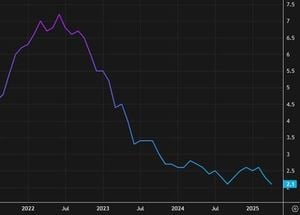On June 27, 2025, Thailand's Department of International Trade Promotion (DITP) took decisive action to address a troubling issue undermining the reputation of Thai Hom Mali rice in China. The department ordered its Commercial Counselors stationed in seven Chinese cities—Chengdu, Kunming, Nanning, Guangzhou, Xiamen, Zhengzhou, and Qingdao—to investigate reports that Cambodian rice products were being sold in China using packaging featuring the Thai national flag and a certification mark closely resembling the official Thai Hom Mali rice guarantee.
The problem came to light after Thai nationals in China alerted the DITP that rice produced in Cambodia was being marketed in Chinese supermarkets and online platforms such as Taobao, JD.com, and Pinduoduo with misleading labels. These packages often bore the Thai flag and a symbol resembling the authentic Thai Hom Mali rice certification mark—a distinctive image of rice grains on a green background issued by Thailand's Department of Foreign Trade to certify quality standards. While the Chinese-language text on many packages correctly identified the rice as "Cambodian Hom Mali rice," some brands confusingly used Thai script stating "Thai Hom Mali rice," blurring the lines for consumers.
Sunanta Kangvalkulkij, Director-General of the DITP, expressed concern over the potential damage this misrepresentation could cause. "This situation may confuse Chinese consumers and negatively impact the image and trust in authentic Thai Hom Mali rice in the Chinese market," she said. The DITP's swift response aims to protect the integrity and reputation of Thai rice, which enjoys a prestigious status worldwide for its quality and aroma.
To combat the issue, the DITP has outlined a four-pronged approach. First, the department is engaging directly with rice importers and online platforms to halt the sale of rice products with incorrect or misleading packaging and to ensure that all information is accurate and truthful. This step is critical to prevent further consumer confusion and to remove deceptive products from the market.
Second, the DITP is ramping up efforts to publicize the authentic Thai Hom Mali rice certification mark among Chinese consumers. The official mark, featuring rice grains against a green backdrop, is a trusted symbol of quality issued by the Department of Foreign Trade. By raising awareness, the DITP hopes to empower consumers to recognize and prefer genuine Thai rice over imposters.
Third, the department is coordinating with the State Administration for Market Regulation (SAMR) in Beijing, China’s primary market regulatory agency, to enforce controls on products that cause consumer misunderstanding. This collaboration aims to leverage Chinese regulatory mechanisms to crack down on false advertising and mislabeling practices.
Finally, the DITP is considering legal action against offenders. This includes addressing false advertising, violations of consumer rights, and breaches of product quality laws. The department is working closely with local authorities, the China Consumers Association, and Chinese market oversight bodies to pursue these cases rigorously. Arada Fuangtong, Director-General of Thailand’s Department of Foreign Trade, confirmed that if trademark infringements are confirmed, legal proceedings will be initiated to protect Thailand’s intellectual property rights.
These measures reflect Thailand’s commitment to safeguarding the global reputation of its Hom Mali rice, a product that contributes significantly to the country’s agricultural exports and cultural identity. The DITP emphasized that it will closely monitor developments and maintain collaboration with all relevant stakeholders to uphold consumer confidence in Thai rice across international markets.
For consumers and interested parties seeking further information, the DITP has made resources available through its official website and a dedicated hotline, ensuring transparency and ongoing communication regarding this issue.
This incident underscores the challenges faced by authentic products in an increasingly globalized marketplace, where mislabeling and counterfeit goods can swiftly erode brand value and consumer trust. Thailand’s proactive stance demonstrates a robust defense of its agricultural heritage and the economic interests tied to one of its most iconic exports.




